Literary Criticism
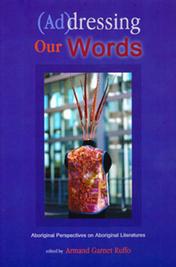
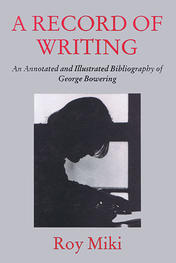
A Record of Writing
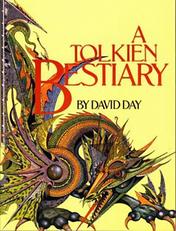
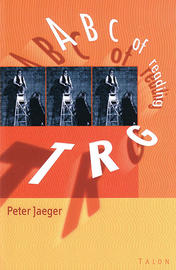
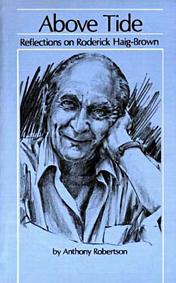
Sometime in the late '50s or early '60s Haig-Brown kept an autobiographical notebook. It is not very long, and he seems to have abandoned fairly quickly the idea of writing an autobiography. Some of the entries in it are revealing, however, of his literary ambitions, a subject he avoided in most of his essays. For most of his writing life, neither the craft of writing nor his subject matter were in much regard in Canada. Even at the height of his popularity as a writer, he was not well-known, and must never have felt secure in his reputation. There is more critical attention paid now to writing in Canada than there was twenty or thirty years ago, but there is still almost no critical attention paid to the kind of books Haig-Brown wrote. His ideas, and the form he created for them, remain outside the literary mainstream, where they were when he wrote these words in his notebook:
"The independent writer is one of the lost, the damned, the unidentified, belonging to no specific community or organization, without security or any real stability. in my own community I am, as a writer, unidentifiable, incomprehensible, practically nonexistent. As a magistrate I am clearly recognizable, tangible, acceptable. Yet the truth is that I am a writer, financially, practically, and in every other way even when I am sitting and acting on the bench. True, I identify with the law, try to understand it, do my best to interpret it fairly and usefully. But whatever success I have in these endeavours is through a lifetime of conditioning as a writer. I think it important that a writer should be, in this way, a lost soul. Paradoxically, it puts him on the side of the angels by giving him an instinctive concern for other vagrant souls. It gives him his freedom, stark and barren of material reward though that may be. It makes him a man in the original sense, leaving him alone to gaze appalled at the infinity about him and beyond him. This is as and where he should be."
This is for Haig-Brown an unusually bleak vision of "original man," left alone to "gaze appalled," and in its expression we can hear the loneliness that haunted him, a writer so concerned with the idea of community, yet estranged from it. It is a loneliness hat he defeats in most of his written work, For in his work we see the lifelong search for harmony and order, for reconciliation and building anew, and only occasionally do we hear that particularly twentieth-century note of alienation. His books build away from that experience toward the New World.
The autobiography was never written; of the "inner man," we know little. He was reticent by nature, but in his books we find the outer shape of his life and its intellectual formations. Isolated in the country, he strove for a community of harmony, maintaining a lifelong commitment to that "higher loyalty" he often wrote about. It is that loyalty to our best potential that makes his work strong, and brings us back to it again and again.
In the Compleat Angler, Piscator at one point grasps his companion's arm and says, "good company and good discourse are the very sinews of vertue . . . I love civility." Haig-Brown too loved civility -- a word with an old-fashioned ring -- and the qualities of "vertue" constitute much of what he hoped for the man of the New World. The "civil man" was an Edwardian ideal that Haig-Brown retained in his wilderness community; the loyalties that his father knew modulated into a loyalty to a new world.
Haig-Brown was neither an economist nor an ideologue, yet his work carries a clear economic and political lesson. He was a conservationist but not a hermit. He saw the political and economic structures of the old world transplanted to the new, and destroying it. His lesson is simple: social and economic systems that set man against nature also set man against man. In his books he drew the contours of the new man needed for the New World. Frustrated much of the time by the course of history, he maintained his faith in the possibility of real community. His essays are the eloquent expression of that belief.
George Woodcock has described Haig-Brown as a "local writer" in the best sense, demonstrated by his attachment to and celebration of place. Place is important, very important, even when it is not so densely populated as Hardy's Dorset. Haig-Brown came to a new place and made it his own.
"It was all river and forest and mountain on the grand scale, full of secret possibilities -- hidden lakes and swamps, narrow valleys with steep-walled canyons, abundant wildlife except in the deep forest, immense salmon runs, trout in every lake and stream. But what was known about it all seemed little more than rumours and old wives tales." (Writings and Reflections)
The place inspired the work. In the rivers and the forests Haig-Brown saw the "secret possibilities" that promised a truly New World: something commensurate with man's capacity for wonder. Well in advance of most North Americans, but in the tradition of Thoreau and Emerson -- and Isaak Walton -- he beheld the natural world as the proper setting for mankind. In his work, we learn of the possibility of a successful civilization.
On October 9, 1976, the Saturday of the Thanksgiving weekend, Roderick Haig-Brown spent the morning stacking wood and cutting the grass around Above Tide with his new tractor. He put the tractor away and came out beside the house as his wife called him for lunch. Beneath his study window he collapsed and fell to the ground and died. Around him was the sound of the river he loved.
The house still stands. It now belongs to the people of British Columbia and Ann Haig-Brown still lives in it, on a life tenancy. Haig-Brown's is the first "writer's house" to be made a monument in BC, making it possible for the interested to visit there, and get the feel of the place that informed the man and his work. From the desk where he wrote one can see the Campbell River, the trees on the opposite bank, and part of the field beside the house. Under his window a rose garden runs down a fence to the river's edge. The sound of the river is all around the house, and is louder than the sound of the road, which is significantly a few metres further from the house than the river. The remaining eight acres of ground on the river side of the road are threaded with walking trails that meander down to the river and back. The Kingfisher Creek Project is opening up a long filled-in creek that cuts through the property. Someday salmon will spawn there again. The house is a museum and a library: the thousands of books organized and catalogued by Ann Haig-Brown stand on the shelves as they did when Haig-Brown was working in the study overlooking the river.
A remarkable amount of work was accomplished in the house by the river; much of it will last. Haig-Brown is a writer whom society must grow into. It matters that a writer be read, that readers make a place for a writer as he does for them. So long as we can sustain the idea that books and words matter, and that coming to terms with who we are means knowing where we are, then Haig-Brown's best work will continue to find its readers. To the great tradition of Walton, Gilbert White, William Cobbet and Richard Jeffries, Haig-Brown brought an immigrant's passionate love for his new home, and faith in the reconciliation of man and nature. As he wrote of Izaak Walton, we might think of Haig-Brown himself:
"[He] had standards of religious faith and earthly loyalty that seemed to grow stronger all through his life. He knew, perhaps more fully than any other man ever has, the sources of fulfillment and freshness that were to be found in the countryside and in his gentle art."
In place of Walton's religious faith, Haig-Brown developed a faith in that "higher loyalty" to a new community of man nature. Many questions, of course, remain to be answered. Toward the end of Writings and Reflections, Haig-Brown asks:
"What is the nature of man in relation to his environment? or, more specifically: Can man make a rational response to his knowledge of the environment? Can he become sensitive, generous, and considerate to his world and the other creatures that share it with him, or is his nature immutably rooted in blood, sex, and darkness?"
By the Haig-Brown house, the river leads into and out of the wilderness, a narrow line of light. The farmhouse beside it looks as if it has been there from the beginning and belongs as much as the trees and birds and the moving water itself.


